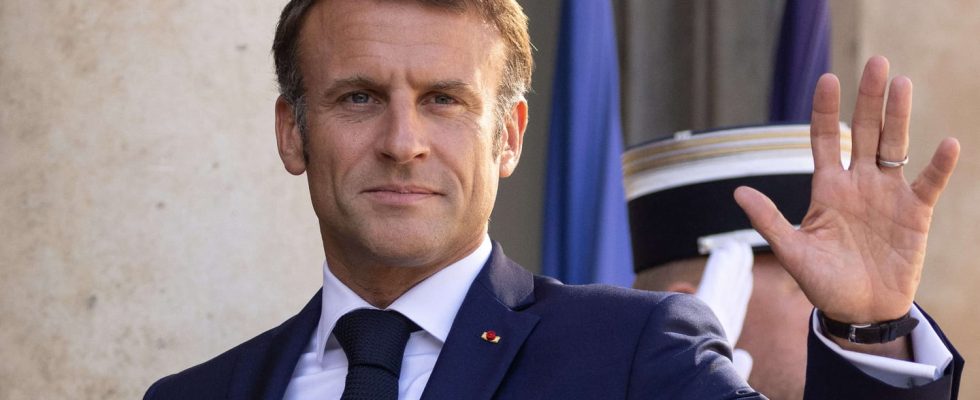Emmanuel Macron will attend the mass given by Pope Francis in Marseille, on September 23, 2023. Criticized by left-wing politicians, he claims to be “at [sa] place” of head of state by going to the event, although religious.
“I will not go as a Catholic but as president.” Emmanuel Macron persists and signs: he will go to the mass celebrated by Pope Francis at the Vélodrome stadium in Marseille on September 23, whatever the political class says.
The confirmation of the presence of the head of state at the Christian celebration by the Elysée on September 14 was not well received by left-wing politicians. The thought leader of La France insoumise, Jean-Luc Mélenchon went so far as to say on to secularism. A criticism brushed aside by the President on Friday September 15 during a trip to the Côte d’Or: “It’s my place”. But is it really? Pope Francis has repeatedly repeated that his coming to Marseille was not a state visit and Emmanuel Macron, who will ultimately have several interviews with the sovereign pontiff, was initially not invited to mass.
Relations with all religions not excluded
Faced with the emerging controversy, the Elysée tried to defuse the situation by describing the pope’s arrival as a “popular” and “festive” event and rare enough to justify the presence of the head of state. Which “do not participate[a] “not to the Eucharist as a believer” due to his functions, the palace had further clarified. But this argument failed to silence the critics, the presidency invoked the law of 1905 on the separation of churches and State which “does not exclude relations with all religions”.
Explanations which do not remove all doubts about Emmanuel Macron’s right to go to a mass as President of the Republic. His predecessors had done so and one of them had even attended a papal mass, the last time dating back 43 years: Valéry Giscard d’Estaing had attended the celebration of John Paul II in front of Notre-Dame. If in the private context, the Head of State can practice religion, as a representative of the State he must be the first defender of the principle of secularism according to which the State must be neutral vis-à-vis religions. .
Only one condition can explain the presence of a President at a mass or other religious service according to the philosopher Lucien Jaume, research director at the CNRS and member of Cevipof, interviewed by TF1 Info : “A head of state does not, as such, have to participate in a religious service, except in the specific case where the Republic through him shows a national tribute to a great person.” A scenario that does not correspond to the mass of Pope Francis.
A meeting between two heads of state
If the Pope is the patron of the Church, he is also the head of state of the Vatican. In this sense, a political meeting between the two men is perfectly understandable. But the political dimension collides with religion when it comes to attending mass. Then comes the position of the Elysée which ensures that Emmanuel Macron goes without religious considerations to a “popular” event. A response that leaves the debate open.
